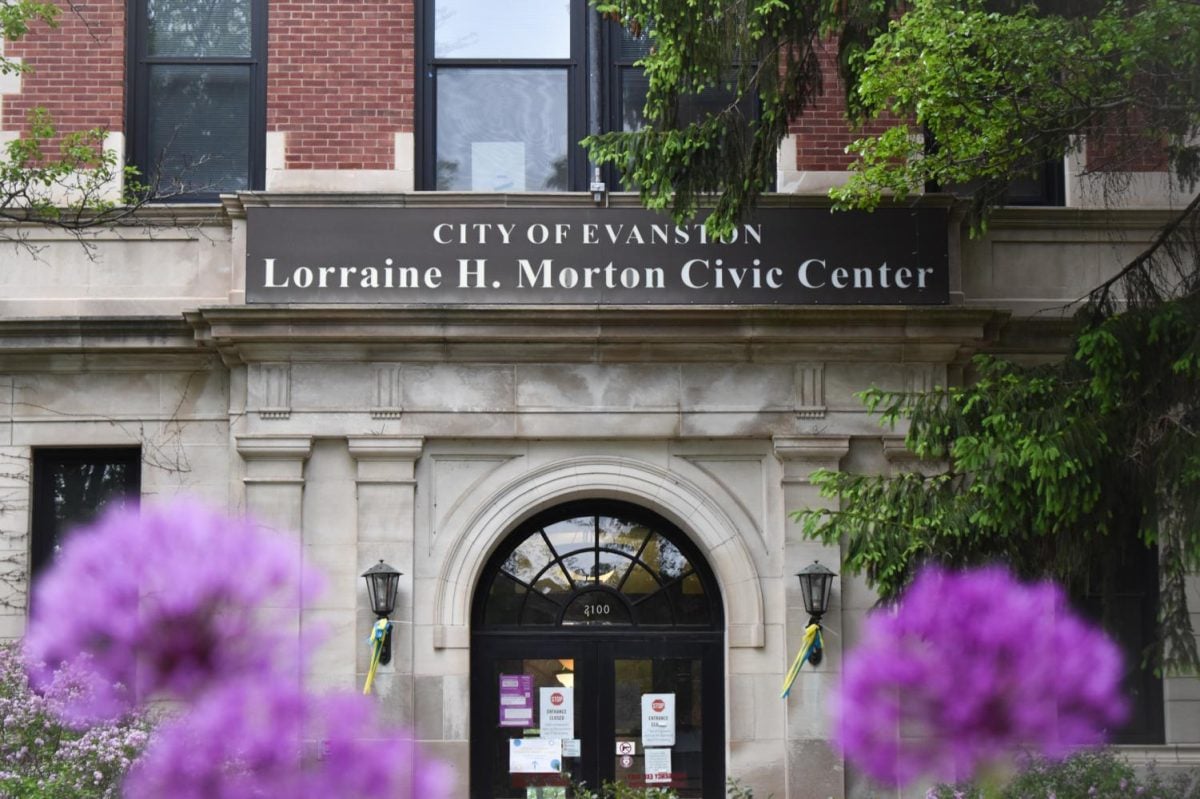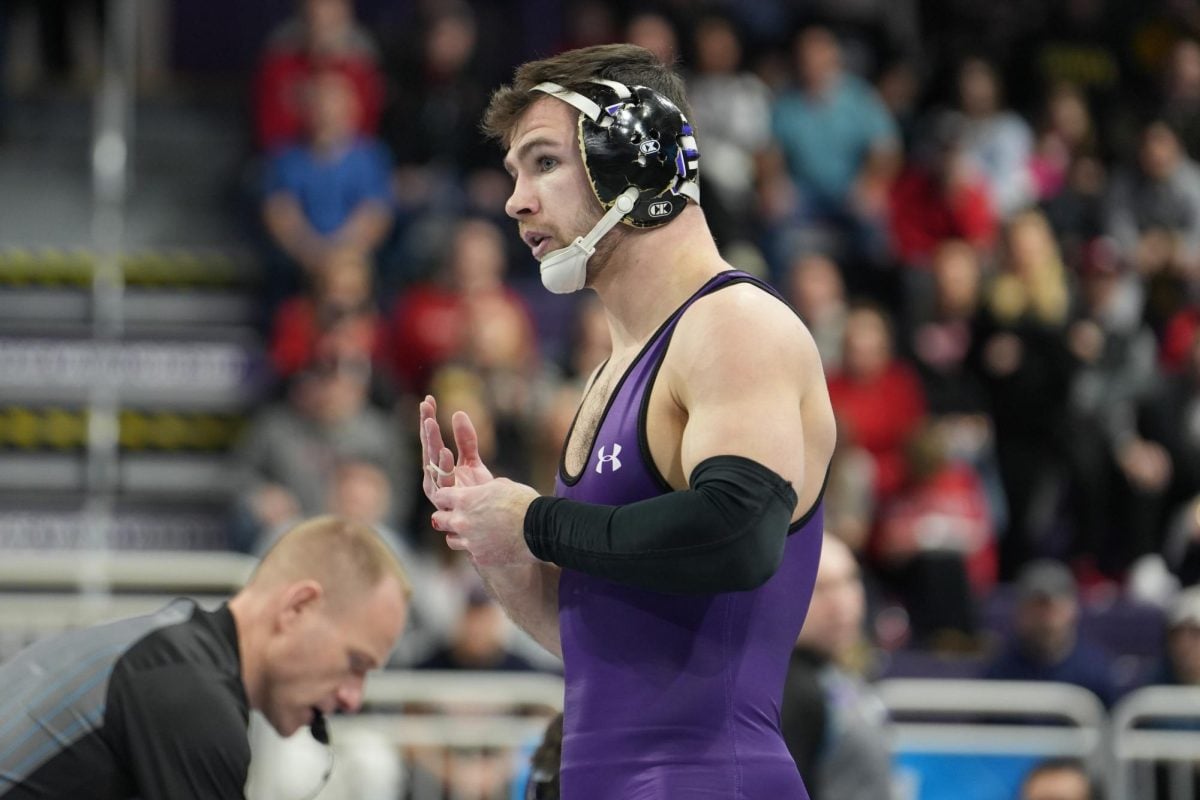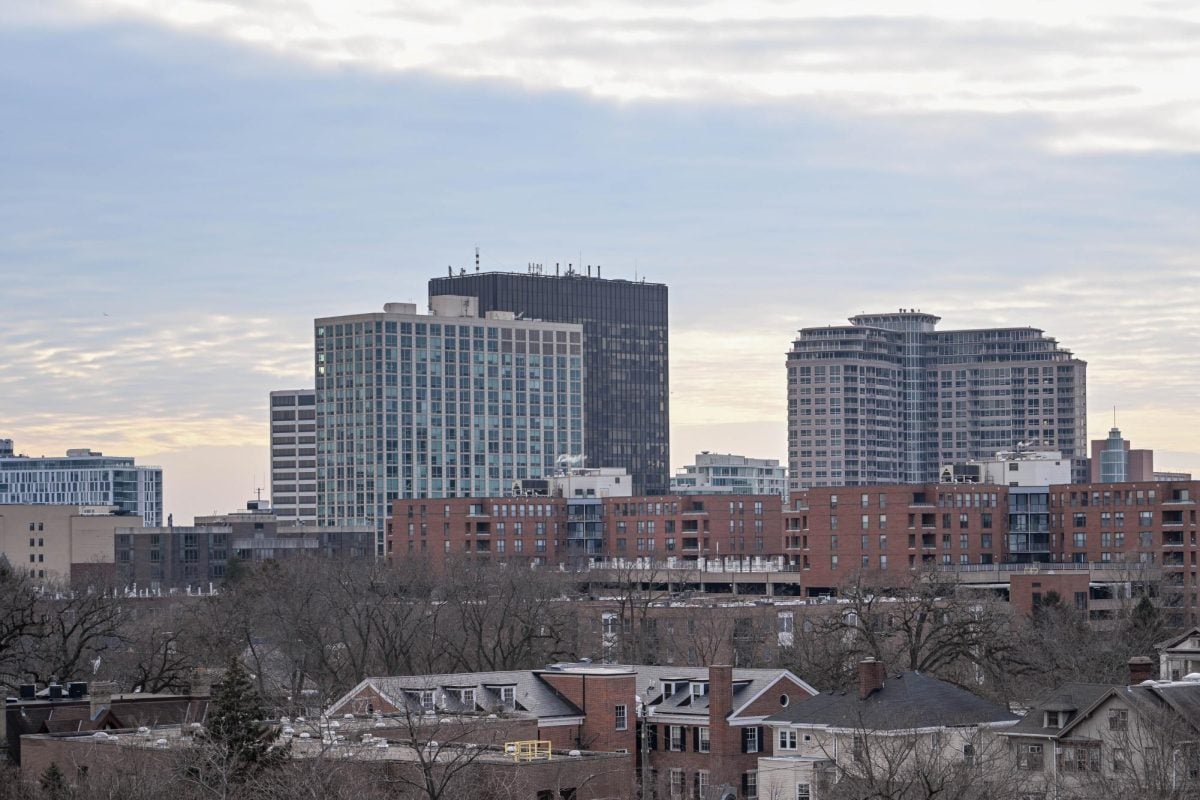It’s easy for Northwestern students to tell a friend or a family member that they go to school in Chicago. The glamor of the nation’s third-largest city can become a simple shorthand to triangulate NU’s location.
But NU is not in Chicago. It’s in Evanston, a suburb sleepy in some areas and, in others, lively. The some 78,000 people who live in Evanston make it a city brimming with both opportunities and complexities.
A Brief History
NU preceded Evanston, opening the doors to the Old College in 1855, some eight years before Evanston incorporated as a municipality. However, Indigenous peoples preceded both the city and University, with a number of Indigenous nations once inhabiting the land that is now Evanston. The Potawatomi, the last of the Indigenous tribes, were removed from the land by the United States government via a 1833 treaty.
In the 165 years since its incorporation, Evanston has found itself in the national spotlight on several occasions. Perhaps most notably, it became a focal point of the temperance movement. Evanston local Frances Willard (after whom Willard Residential College is named) was the second president of the Woman’s Christian Temperance Union.
Evanston also had one of the earliest significant Black suburban communities in America. Some Black people arrived in the mid-1800s, but in between the World Wars, many Black people moved to Evanston, cementing a community that remains to this day. Still, those residents faced redlining and other discriminatory practices in Evanston. The effect of those harmful practices form the basis of Evanston’s Restorative Housing Program, which makes Evanston the first city to attempt reparations for Black residents.
Town-Gown Relationship
NU’s existence in Evanston elicits varied responses from residents. One might see a “Go Cats” sign in one yard and an anti-NU sign in the next. The University’s relationship with Evanston has been complex for years, with many complaints surrounding NU’s taxes — or lack thereof. As a non-profit, NU doesn’t pay property taxes to Evanston. And since the University owns many of the most valuable residential buildings in Evanston (which it uses as office spaces), some residents believe that NU has prevented Evanston from collecting a substantial chunk of its potential revenue.
NU has provided Evanston with special funding in specific areas — notably environmental improvements and racial equity programs — since at least 2015.
A more recent issue is the Rebuild Ryan Field plan. NU is proposing to build a privately-funded $800 million stadium in the 7th Ward. The venue will also host concerts, and residents have raised concerns over noise and traffic levels at the new facility.
Food and Entertainment
Perhaps the most notable recent development in Evanston entertainment was the November 2022 reopening of the AMC 12 theater on Maple Avenue. An indoor trampoline park is also scheduled to open sometime during the school year on the same block.
A fun but fleeting activity is the Downtown Evanston Farmers Market, which runs every Saturday morning through early November. It returns for a few weeks in Spring Quarter, then runs throughout the summer.
Evanston is also home to a restaurant scene that is largely tailored to the fast-casual needs of college students. Earlier this year, Yelp named Ovo Frito Café the 42nd-best brunch restaurant in the nation. Hecky’s Barbecue, a longtime Evanston staple, recently won a Chicago Tribune’s Readers’ Choice Award for best Chicago-style barbecue.
A shortcoming of Evanston’s restaurant scene, however, is a lack of late-night options, with just a handful of restaurants open past midnight. Many students turn to Chicken Shack, a fried chicken joint open as late as 12:30 a.m., to fill that void.
Politics
Much like NU, Evanston is a liberal community, with almost 91% of residents voting for Joe Biden in the 2020 Presidential Election. Rep. Jan Schakowsky (D-9th), whose district contains Evanston, is one of the most senior Democrats in the House of Representatives.
That leftward tendency is reflected in local initiatives. Evanston is the first city in the nation to institute legislation aimed at providing reparations for Black residents. It also recently began its new participatory budgeting process, by which residents can help allot city funds.
Email: colereynolds2026@u.northwestern.edu
Twitter: @charcole27
Related Stories:
— Yelp names Ovo Frito Café one of 100 best brunch restaurants in U.S.
— Hecky’s carries on late founder’s legacy, wins award for best Chicago-style BBQ



















